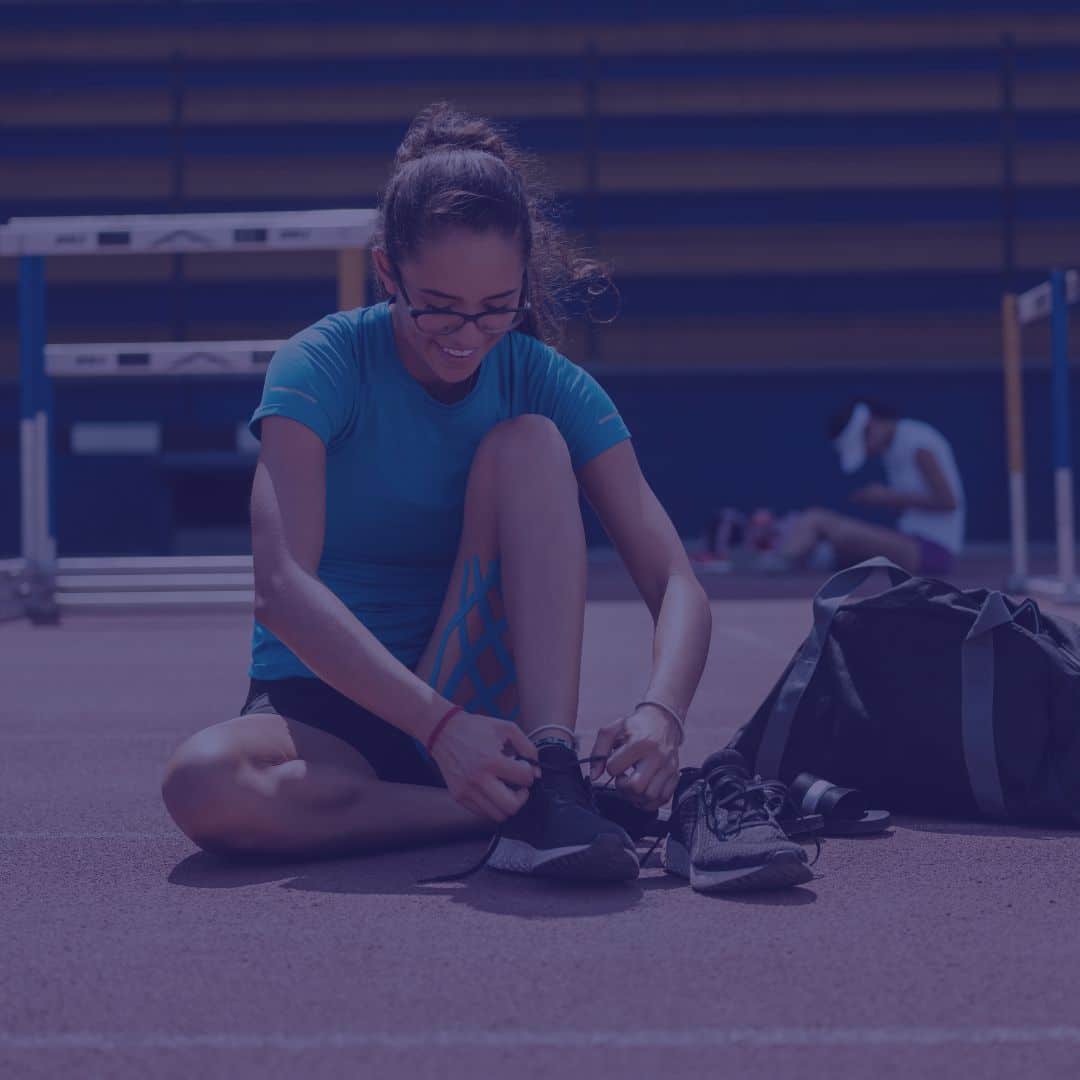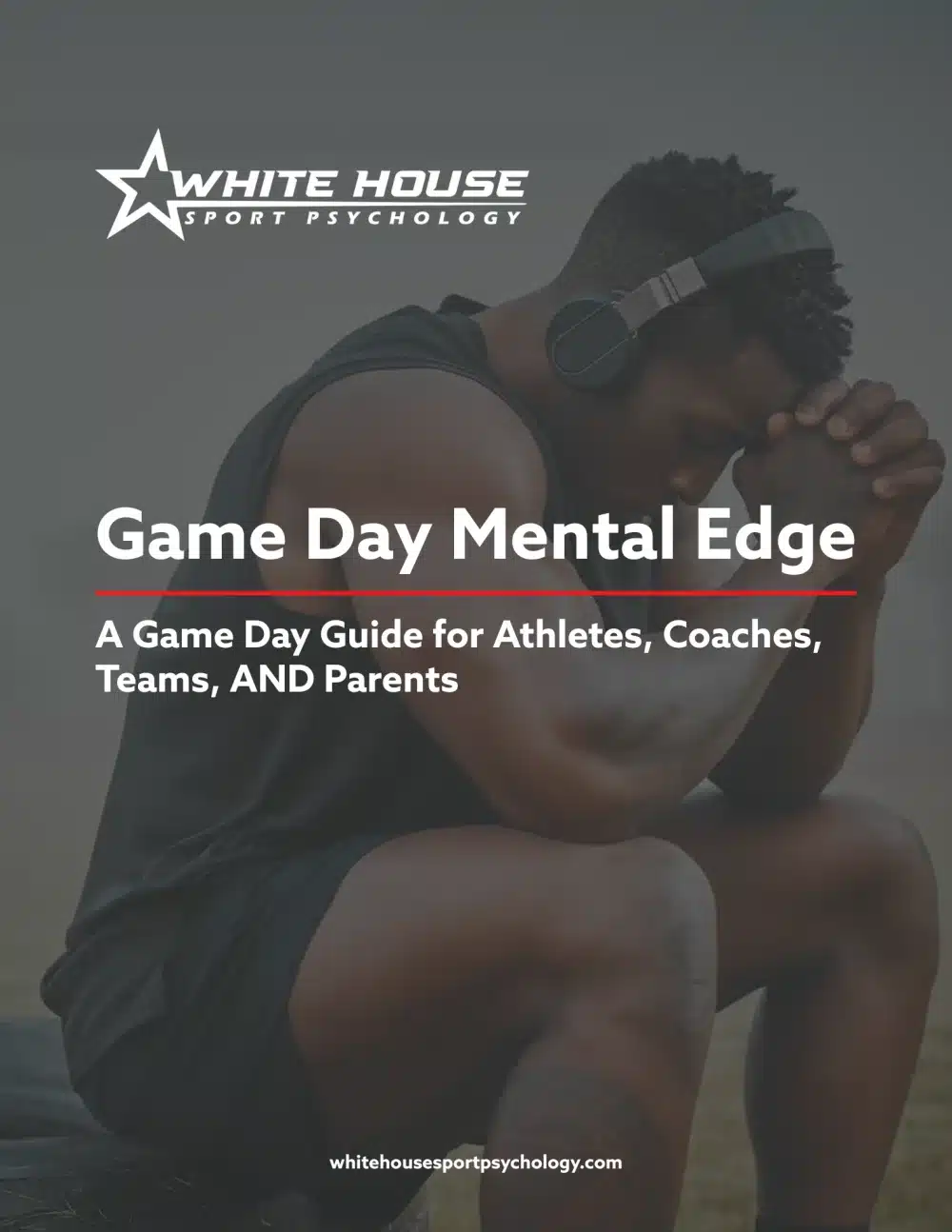When it comes to maximizing the potential of your collegiate athletes, having a skilled sport psychologist on your team can make a significant difference. However, finding the right one can prove to be much harder than many coaches and athletic directors realize.
The growth of sport psychology is great, and yet it is also a space that is quickly becoming very crowded with a wide variety of people trying to “get in on the action.” Make no mistake: sport psychology isn’t just the latest trend or fad. With the rise of sport psychology, the mental side of sports and the mental health of the athletes competing in those sports is finally getting the attention it deserves—and it is a core part of the future of athletics.
Below, we’re sharing the top 9 things you need to consider when looking for a sport psychologist to assist your athletes. From education and specialized training to cultural understanding and even personality fit, we’ll cover all the key factors you need to know so you can make an informed decision.
Education, Coursework, and Degrees
Finding the right person to lead your sport psychology efforts starts by understanding how sport psychology is different from traditional counseling or therapy. Traditional therapy focuses on mental health and the diagnoses (e.g., depression, anxiety, OCD, etc.) some people—including athletes—live with. Sport psychology focuses on the mental side of sports performance, like focus and concentration, staying calm in pressure situations, confidence, and more. These are mental tasks that affect how an athlete performs, yet they are not “diagnosable conditions.”
With this in mind, coaches, athletic directors, and other decision-makers need to be looking for a professional who completed sport-specific coursework and has a sport-specific degree.
When hiring (or contracting) a sport psychologist, be willing to ask about a candidate’s coursework and the degrees they have earned. If they can highlight extensive coursework (and a degree that is explicitly Sport Psychology, then you’ve likely found a highly qualified individual. If a candidate merely has a psychology or counseling degree or hasn’t completed any courses like those listed above, then caution is warranted.
You should also search for qualifications such as PhD, CMPC, ATC, and CSCS. Someone with a PhD and certification as a CMPC will have specialized knowledge in both sports psychology and mental performance.
Certified athletic trainers (ATC) and strength and conditioning specialists (CSCS) will also provide your athletes with a unique interdisciplinary approach to mental and physical performance.
Finally, a certification in sport psychology and licensure in counseling psychology emphasizes a dual focus on both mental health and performance enhancement.
Our founder, Tim White, has received all of these credentials, and you can learn more about his experience here.
Credentials
When hiring (or contracting) with selecting a sport psychologist, experience and credentials are key. Look for someone with hands-on experience in collegiate athletics, as they’ll be familiar with the unique pressures higher-ed athletes face.
Specialization and Focus
Sport psychologists often specialize in different areas, such as performance enhancement, mental health support, or injury recovery. Each focus addresses distinct needs: performance enhancement helps athletes improve their mental game, mental health support tackles issues like anxiety or stress, and injury recovery aids in coping with the psychological aspects of rehabilitation.
To find the right fit for your team, align the psychologist’s specialization with your athletes’ needs. Choosing a sport psychologist whose focus matches your athletes’ challenges and goals ensures the support is both targeted and impactful, helping your team thrive on and off the field.
In addition to focus areas, some sport psychologists also specialize by region to better serve specific communities. For example, our psychologists, who serve Nashville and its surrounding areas, are well-positioned to understand the local athletic culture and meet the unique needs of teams and athletes in this region.
By finding a psychologist nearby who can help you, you can ensure the support your athletes receive is targeted, relevant, and impactful—helping your team thrive on and off the field.
Background and Expertise
When hiring a sport psychologist, having a solid background in both sports and psychology is essential. A strong foundation in sports helps them understand the unique pressures and demands athletes face, while a robust background in psychology ensures they have the tools and techniques needed to provide effective support.
A sport psychologist’s past work can greatly influence their approach and effectiveness. For example, someone with experience working with collegiate athletes will be more adept at addressing issues like performance anxiety or balancing sports with academics. Their previous roles and experiences shape how they approach problem-solving and support, making them more likely to offer strategies that resonate with your team.
Personality Fit and Rapport
Personality and interpersonal skills are also more important than you might think. The right sport psychologist should be skilled and have a personality that meshes well with your athletes. A good fit in terms of personality can make a big difference in how comfortable and open athletes feel during sessions.
Why does this matter? A sport psychologist who connects well with their clients fosters a strong rapport, which can enhance the effectiveness of their services. When athletes feel at ease and understood, they’re more likely to engage fully and benefit from the support provided. This rapport helps build trust, making it easier for athletes to tackle challenges and achieve their goals.
This is something our founder, Tim, discussed on the sports medicine podcast “To The Bone.” Tune in to learn more about his approach to mental health.
Location and Accessibility
Consider each sport psychologist’s location and how easily they can connect with your athletes. Having someone who can visit your campus offers the advantage of face-to-face interactions, helping build stronger relationships and allowing for seamless integration into your team’s routine.
Alternatively, virtual sessions offer flexibility and convenience, fitting better into busy schedules and removing the need for travel. This can be especially useful for consistent support without disrupting athletes’ routines.
At White House Sport Psychology, our experts offer both in-person and virtual options. Check out our services for college athletes, so you can receive the support you need in the way that will be most impactful for your team.
Cost and Logistics
Fees for sport psychologists can vary based on experience, service type, and whether sessions are in-person or virtual. Make sure you know what to expect in terms of costs.
Budgeting involves more than just comparing prices. Consider the value these services bring—improved performance, reduced stress, and overall well-being can make the investment worthwhile. Evaluate cost-effectiveness by assessing how the psychologist’s expertise aligns with your team’s needs and if the results justify the expense.
You can also discuss pricing options and packages with potential sport psychologists to find a solution that fits your budget while meeting your team’s goals.
References and Reviews
Don’t forget to check references and read reviews. This helps you gauge each sport psychologist’s effectiveness and how they’ve supported other teams.
Ask for references from previous clients or programs to get firsthand feedback on the sport psychologist’s approach and impact. Also, read online reviews for a broader perspective on their reputation and the results they deliver.
This information will help you make an informed choice, ensuring the sport psychologist you select is well-suited to meet your athletes’ needs.
Trial Sessions and Consultation
Trial sessions or initial consultations are a great way to get a feel for a sport psychologist before committing. These sessions let you see how they interact with your athletes and assess their approach in action.
During these trial sessions, pay attention to how well the psychologist communicates and whether their style resonates with your team. Are they engaging and easy to talk to? Do they understand your athletes’ needs and goals?
Finding the right sport psychologist can make a big difference for your collegiate athletes, from improving performance to managing stress to building resilience. And by considering these factors, you can choose a professional who truly supports your team’s needs.

